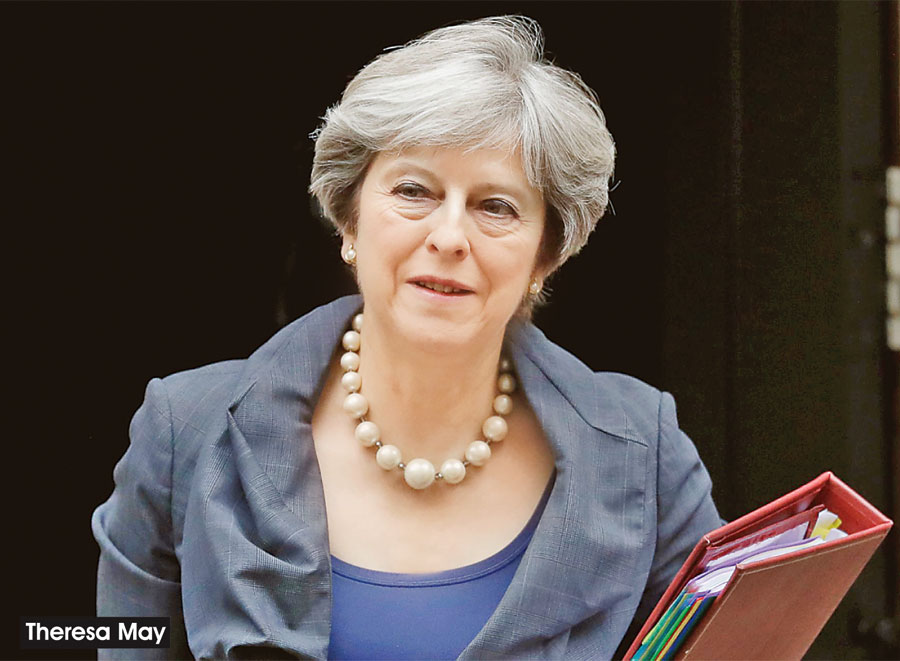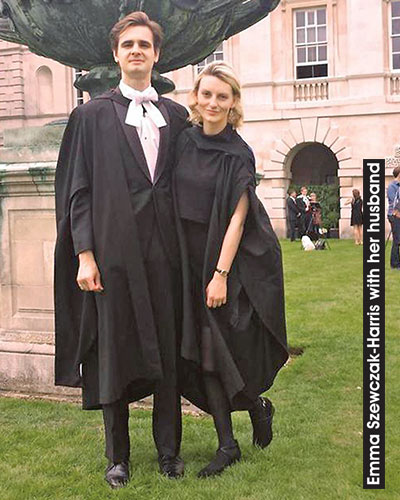ASIA’S ACQUITTAL WELCOMED IN UK
- 10 Nov - 16 Nov, 2018

Britain has not left the European Union yet, but the prospect, along with the devastating spending cuts inflicted by the Tories which have ravaged Britain’s much prized National Health Service (NHS), have brought about a huge change in the attitudes of medical staff in the country.
Sadullah would not strike anyone as a typically British surname, yet in the 41 years that I have lived in the UK, neither I nor any member of my family, all carrying the same surname, have ever been asked to provide documentary evidence of the fact that we are entitled to free NHS treatment before receiving such treatment. But times have changed.
A few days ago a young lady in the eighth month of her pregnancy, British born and bred, was denied treatment by a hospital in Cambridge because she had not brought along papers providing proof of her residence in this country. Her name is Emma Szewczak-Harris, the first part of her unpronounceable surname coming from her Polish husband who, it was said, works at the site of the hospital which denied her the treatment. Emma, of course, was devastated, made to feel like a ‘second class citizen’, she said, adding that the sole identifiable reason for her ‘second class’ treatment was her surname. As someone once said, the degree of acceptability in British society is in direct proportion to the pronounceability of your surname, or so it was till in the discrimination stakes Muslims became the flavour of the month. But British identification of Muslims by name is poor, and most names beyond Ahmed, Mohammad or Abdul have a good chance of passing below the radar. Sadullah often does and so the sort of response it gets is usually dependent on where it stands on the pronounceability scale and although for most people in the UK it ranks pretty high, the fact of the matter is it cannot hold a candle to Szewczak which is an absolute peach.

The strange thing is Mrs Szewczak-Harris contends that she was never asked to bring any identity documents, which leads us to the second point about how discriminatory societies act. Power is usually given to petty officials to make big decisions, as in airports. Here it was some petty official sitting at the hospital reception desk who probably decided that Mrs Szewczak-Harris should be barred from getting medical treatment because she had not brought the documents to prove her residential status in this country and the reason why such petty officials are given huge powers is so that there is space for backtracking where press reports or other factors make it necessary.
A spokesman for Addenbrooke Hospital said the letter was part of a pilot scheme to stop overseas patients getting certain types of free healthcare on the NHS and that non-emergency maternity patients were asked in appointment letters to bring the proof of residence. This scheme actually comes into force in two days’ time and therefore I may have spoken about not being queried a bit too soon. Mrs Szewczak-Harris, however, denied she had received any such request.
All this is happening even before Brexit has happened and by all accounts, the process is not going too well. A recent poll shows that about three-quarters of British people think so and they have good reason for thinking so, given the constant blast coming from the other side of the channel. A couple of days ago, Mrs May had a dinner with senior European leaders in a bid to persuade them to start talks on Britain’s future relationship with the EU, particularly on matters affecting trade and financial affairs, as soon as possible, and though the EU made the right noises, they did not budge from their stand that such talks could not start till ‘substantial progress’ had been made on settlement of the divorce bill, the issue of rights of EU citizens in the UK and UK citizens in the EU, and the tricky question of the EU’s border with Northern Ireland. The EU, of course, will be the sole judge of what constitutes ‘substantial progress’. Of these, the key issue seems to be the one about the divorce settlement with the EU said to be demanding anywhere between 60 and 100 billion euros while the best British offer to date is said to be 20 billion euros. Even if the lowest EU figure of 60 billion is taken as the true figure, there is a fair distance between 20 and 60, and at the moment there seems no chance of it being breached. Acceptance of the 60 billion figure could spell death for the Tories, for none of the great champions of Brexit had prepared their admiring followers for a kick of this magnitude and therefore receiving one is not going to go down well. Come to think of it, at the moment it is difficult to come across any effect of Brexit that could go down well. You just have to see pictures of Mrs May at one of these Brexit summits to realise what is going on. For all money, you could be forgiven for thinking she has just swallowed a tadpole. •
COMMENTS